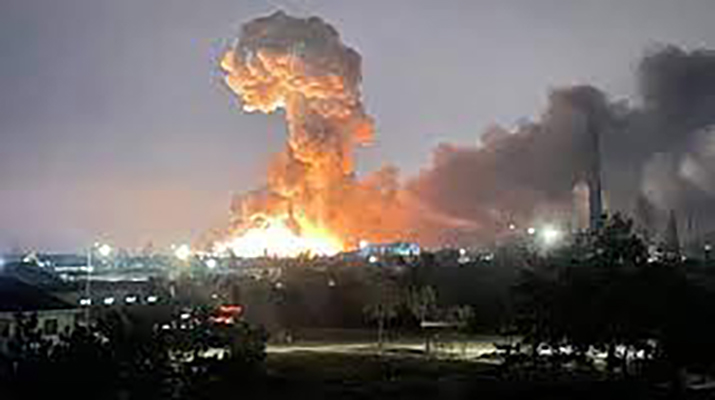THE CONFLICT BETWEEN RUSSIA AND UKRAINE
It is happening again. There are always those who lay claim to something because it was theirs two centuries ago, and others who do not want to give it to them because in the meantime the issues involved have changed. Add to this some nationalistic rhetoric, a few resurrected flags, emphatic speeches, a pinch of misunderstood patriotic enthusiasm and war is served. The Russia-Ukraine conflict, which is in danger of setting the whole world on fire, is no exception. As always, the motives do not correspond to the declarations of the leaders and in any case, whatever justification they invoke, those who invade violate international agreements and do not act to liberate or defend anyone.
Historians will explain to us how it happened, and in the meantime comes the tragic confirmation of what we have always known: we work every day for peace, especially when nothing is going on. Underestimating the cry for help of those who have on their agenda the need to open up to dialogue before the armoured cars fill up with fuel may turn out to be lethal. United Nations and Council of Europe, where the Campana dei Caduti Foundation is present with observer status, pursue with determination, also in times of peace, a continuous diplomatic action in crisis regions, precisely in order to avoid the underground river of nationalism re-emerging to stoke economic wars - which what wars always are. And they ask the organizations who work on the ground to do their part, especially when the weapons are silent.
A few years ago, two chess grandmasters, one Russian and one Ukrainian, went up to the Colle di Miravalle. Their names are not important now. They were two men who were aware of the situation in their countries and knew that it could come to a head at any moment. They did what they knew how to do. They played chess according to the rules, they shook hands and accepted the result. Symbolic actions do not serve to stop the surface-to-air missiles, but they may help us to recognize the human-being that lies behind the enemy. Soldiers are all dressed alike. They do not kill a person, they strike at an indistinct mass that is chromatically uniform, which is the meaning, in fact, of "uniform”. The role of civil society is to help us to see the faces behind the guns. Before the guns are loaded.
It is now time for diplomacy, which has not managed to avoid the bombs but cannot give up. From Strasbourg Marija Pejčinović Burić, Secretary General of the Council of Europe, has "strongly condemned the Russian military attack against Ukraine in flagrant violation of the Statute of Council of Europe and the European Convention on Human Rights. This is a dark hour for Europe and everything it stands for". In New York António Guterres, UN Secretary General, has urged President Putin to withdraw his troops and stop "what could be the worst war since the beginning of the century".
Is this the first time we have heard these words? No, but it is one of the few times we have listened to them, because we are afraid of losing what we thought we could take for granted: Peace. Violations of international agreements capture our attention when we start to hear the sound of tanks. This approach has never worked, however. It may be naive, but there are those who think everybody must do their part all the time: politics, by showing the way, diplomacy by creating the conditions so that agreements are signed and respected, civil society by working on people, on consciences, on memory, on ideals and on rights.







